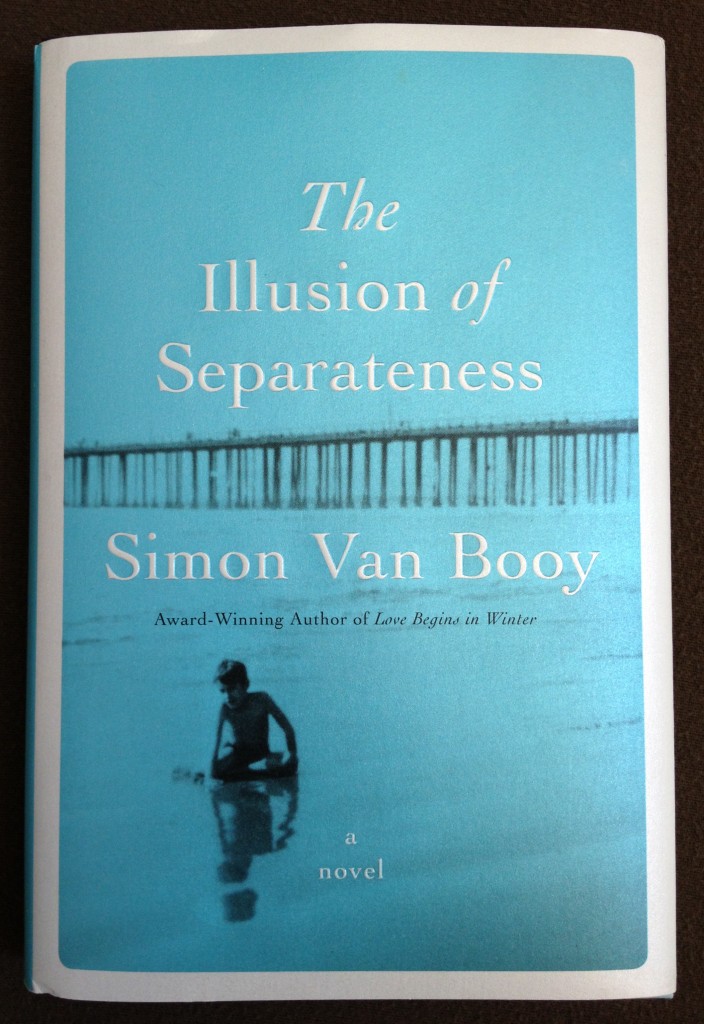.
.
If you knew ahead of time that a novel you planned to read would become one of your favorite books, would you set aside the time needed to complete it in one sitting?
That’s something to consider when picking up Simon Van Booy’s THE ILLUSION OF SEPARATENESS.
Fortunately, while the book is dense with plot and packed with fully-realized characters, its 200-page length and Van Booy’s fluid prose assure that the goal of a “one-day read” can easily be met.
In its opening chapters the novel plants a series of mysteries about the origins and destinies of a varied set of men and women. Much to the reader’s pleasure, revelations begin to emerge about a third of the way into the book and continue up to its final page. The astute reader will likely guess many of the secret connections among the persons portrayed and solve the puzzle of several who-is-savior-to-whom vignettes. Still, it is a thrill to follow the author’s path as he locks these intricate relationships into place.
The non-chronological presentation of personal histories and incidents, covering a time period from World War II to the present day, is smoothly executed. So too are the literary elements. Descriptions of poetic brevity abound. A character watches a river at night and describes it as “a cool muscle.” Another recalls how, at a lively restaurant, a line of arriving cars “held life in the haunches of their gleaming coats.” Elsewhere, dawn is said to bring “the outlines of things coming–a world drawn fresh from the memory of yesterday.”
The reader is bathed in recurring motifs — of flowers, birds-in-hand, mouths, beating hearts, the sundering of bodies, and conjectures about how each personally important place was different in times gone by (“Our house was once a flock of trees in the wilderness”). You encounter earthly paradox: “Some days the sky was so clear, it was like staring into darkness.” You come across countless references to rain, as in this example which illustrates Van Booy’s animist and anthropomorphizing bent:
“Rain says everything we cannot say to one another. It is an ancient sound that willed all life into being, but fell so long upon nothing.”
At its root, the book’s wisdom is that of religious teaching: “For a long time now,” one of the principle characters reflects, “he has been aware that anyone in the world could be his mother, or his father, or his brother or sister. He realized this early on, and realized too that their lives were merely its conditions. The truth is closer than thought and lies buried in what we already know.”
Or, as another character says: We must remember each of us is “part of someone else’s story.”
.
This review appears on Amazon here.
.
